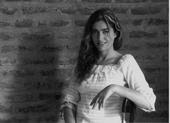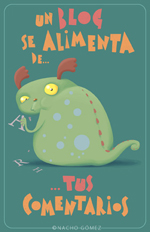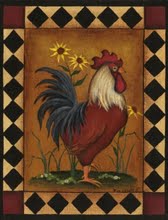From Thirty Jewish Poems and a Christian Song
Isaac Goldemberg
1. The Jew's Imprecise Sonnet
Jesus, you have forgotten my America,
come one day and be born in these crazy lands.
Carlos Pellicer
For God's sake, don't even dream, Jesus,
of being born into my other promised land.
This Jew implores you, groveling,
As well as the Peruvian who flays me
for being the son of a camel. No. A burro.
A burro offered up on your wooden cross
used by the Jew to strip skin from my carcass
for being the imprecise son of a camel and burro.
Jesus, pay no attention to that poet
who calls you from the depth of your Christian
being to be born in these crazy parts.
I swear by the God of Abraham, of you,
that you may not sacrifice for my Peruvian
what you have given abundantly for my Jew.
2. Self-Portrait I
That boy who has only
Back and eyes
That deflated angel
Who looks at me from the emptiness
Of his hell
Is the happy enemy
Of my death
Thus he may be
imagined a son
3. Genealogies
With nothing, with what's called nothing,
rose of passion, oblivion cut short,
a game of amiable death. This is the love
that doesn't recognize even its own dear mother,
unique whore that she is, keep money out of HER sight!
May she never force us to labor
STRETCHING OUT working with our hands like a Christian.
Saying: luck finished up in the billfold and
the eye of the son on the inheritance a father never left.
Surely SHE he will weep, but not for the old man,
surely. Not even open HER umbrella,
surely. Not even speak:
In a city where rain never falls?
Then why so heavy a raincoat,
then why so much filler between two
gravestones erected without names.
It doesn't matter. If not cement, ask for oil.
THERE ARE dead who fly without brakes and the old woman
sleeps. In her cave of shit, she sleeps.
She sleeps her death: The daughter of that father
Who died in the mother. How sorrowful!
What STUPID virile sorrow
For the mother unable to give birth!
4. Inventory I
I was born in the nails of Jesus.
In his heart of refined appearance.
In the six-pointed star.
In the belly of funeral urns.
In the father and his astounding word.
In the mother and her opposing shadow.
In the dead tongue of HER his heavy absence.
5. Houses
All the houses are still in the city.
But my father's is the one that remains least.
He said he would guard his house until the last day of his days.
Much later, a time much later,
he came back from exile to lock it up.
And he left his son, whose house it wasn't, with the key.
Time long ago sold the house to oblivion.
Today oblivion holds its key just like my father's memory.
This will be his crosspiece--he said--my memory.
Much later, a time much later, he moved his house.
Put it over here--he said--where the house used to be.
6. Chronicles I
FATHER:
Your rambling story cries out for
The ashes of my corpse.
The oblivion that cradles your time
Demands the excavation of my roots,
Delivers up your interminable absence.
I am a man facing your image.
Your story walks all over my
footprints of rambling suicide.
The mirage of your prophecy
Removes me from myself.
Promise of eternal rest.
7. Chronicles II
MOTHER:
Your glance backwards
The silence of your deafness
The deceit of your image.
Your miracle estranged from miracles
The goodness of your speech
Like a girl abandoned.
Today more than ever is less humid
The absurd dryness of your absence.
8. Portrait I
A CHARACTER personage completely
A historical.
Master Carpenter
Omnipotent.
Ubiquitous.
Well Intentioned.
He sacrificed His Son.
At times he stays awake
And weeps.
9. Self-Portrait II
My silence is a RINGING tincture of bells
And the most revelatory of words
That keeps its secret quiet
Like this wandering heart
All bell
All silence.
10. Inventory II
There is a deep hole in my heart
And an even deeper hole in my brain:
For those who eat double
And for those who fast with double hunger.
11. Portrait II
Just like that I write of a man
Who walked as a lunatic through the streets
Giving violent good-mornings
To all the words.
He was with us
Without ever having relinquished his amazement.
Nothing was enough for him,
Not even his cadaver looking so much like our BELONGINGS
things.
12. Chronicles III
I have reconstructed the vigil
And remained alert to my nakedness
I needed to submit to the idea
So that my breath might be more than an outburst
I was like an island in the expanse
Held back like an equation
Intact as an arrow in its quiver
Unhurried
Making room for all expectations
I have reconstructed the dream
And sailed directly to my rendezvous
I desired to perpetuate myself in the search
For my flight to be more than an absolute sign
I was like a shard of the imaginable
Immediate as beginnings
Spineless as absence
Without time
Surrendering to the form
Translated from the Spanish by J. Kates and Stephen A. Sadow
Isaac Goldemberg is a Peruvian poet and novelist residing in New York, where he is a professor at Hostos Community College of CUNZ. His novel, The Fragmented Life of don Jacobo Lerner, was recently selected by the National Yiddish Book Center as one of the 100 greatest Jewish works of the last 150 years.
J. Kates is a poet and translator. His literary work has appeared in almost one hundred magazines including The Massachusetts Review, The New York Quarterly, The Plum Review, Salt, and Stand. His published translations include works by Rene Daumal, Robert Desnoes, Paul Eluard, Jacques Prevert, Jean-Pierre Rosnay, Tatiana Shcherbina, Marie Uguay, Tomas Venclova, and Michail Aizenberg. With Stephen A. Sadow, Kates has translated the poetry of Isaac Goldemberg, Angelina Muniz-Huberman, and Ricardo Feierstein. Kates is co-editor of Zephyr Press, which specializes in publishing literature in translation, particularly from the Slavic languages and Chinese. In 1998, he edited In the Grip of Strange Thoughts: Russian Poetry in a New Era, a bilingual collection of the work of thirty-three contemporary Russian poets.
Stephen A. Sadow is professor of modern languages at Northeastern University in Boston. WithJ. Kates, he has translated the poetry of Ricardo Feierstein, Angelina Muniz-Huberman, Cesar Tiempo, and Isaac Goldemberg. These translations have appeared in We, the Generation of the Wilderness: the Selected Poetry of Ricardo Feierstein and in literary magazines such as The Massachusetts Review, The Minnesota Review, The Plum Review, Stand, and The Jewish Frontier. Sadow edited King David's Harp: Autobiographical Essays by Jewish Latin American Writers, winner of the 1999 National Jewish Book Award for Autobiography/Memoir. He has translated Ricardo Feierstein's already classic novel Mestizo and Mario Goloboff's tetralogy The Algarrobos Quartet.
COPYRIGHT 2003 Fairleigh Dickinson University
COPYRIGHT 2003 Gale Group





































1 comentario:
I'm impressed. Not only is the translation natural enough but you can still feel the 'Spanish touch' hitting you through the anglosaxon curtains. Congrats & hope to see u around in Peru some day!
Publicar un comentario